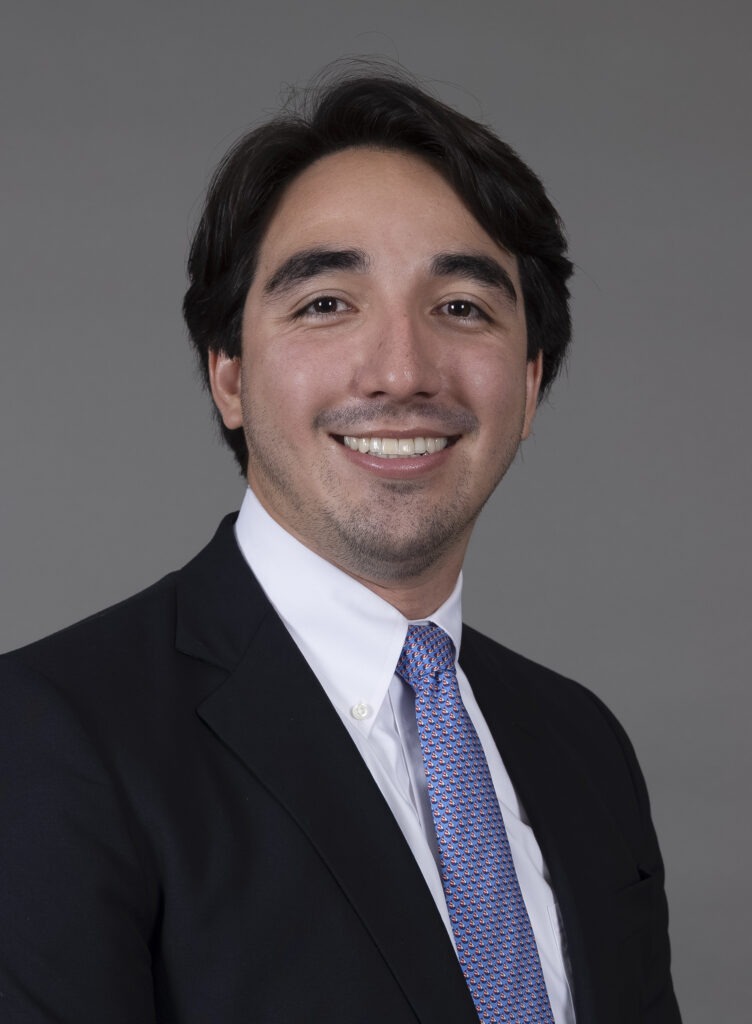Growing up in El Paso, Texas, 1L Austin Edens found his calling for the law while driving with his dad along the Cesar E. Chavez Border Highway that skirts Ciudad Juarez, Mexico, which a decade ago was considered the most violent place on Earth.
“It was pretty stark to me to see the difference an artificial border made in the circumstances and the trajectory of somebody’s life,” says Edens, who is of Mexican and Japanese descent. “That played a key role in giving me a heightened awareness of trust in institutions and a legal system.”
That awareness struck an idealistic chord, Edens adds: “I truly think in a Western liberal democracy, the best way to enact lasting and positive change is through the legal system.”
Edens, who hopes to practice civil liberties appellate law or prosecute war crimes, is working toward his goals thanks to an Arc Fellowship through the S.J. Quinney College of Law’s Arc to Justice program. Supported by six local law firms, the full-tuition scholarship is given annually to two members of the incoming JD class who have overcome significant obstacles in life, such as socioeconomic disadvantage, disability, being the first in their family to attend college, attending under-resourced schools, or other major hardships or challenges.
The award is designed to bolster diversity in the legal profession. Fellowship recipients receive mentoring and summer work opportunities following their first year of law school.
It’s in his coursework on property law that Edens has learned the power of the law, namely how zoning provisions can help or hinder marginalized populations.
“Our legal system perpetuates these structural barriers that end up as a detriment to people of color and of lower economic status,” he says, adding that “it can also affect positive change through peaceful means to change the system.”
Edens enrolled at Utah Law after meeting Associate Dean Reyes Aguilar, who also is from El Paso: “He and I clicked.”
Nurturing diversity in the legal profession helps to eliminate a “homogeneity of thought,” Edens notes. In his classes, “whenever someone has a different opinion from the majority, it does spark a lively discussion, and reflection and thoughtfulness from other people in class.”
The American Bar Association’s 2022 Profile of the Legal Profession reported “substantial” increases in the numbers of Asian American, Hispanic and mixed-race lawyers—from 12 percent of the profession in 2012, to 19 percent a decade later.
“Diversity acts as an opportunity for people, at the very least, to realize that their perspective doesn’t offer the full picture,” Edens says. “Having someone who can bring a different opinion and a different life experience is immensely beneficial.”
These days, Edens is giving thought to summer employment opportunities. He’s considering diplomatic or international roles, or he may apply for work in a public defender’s office. He’s also drawn to prosecutorial work “at the cutting edge of prosecutorial discretion.”
“That means not bringing the full hammer of justice on accused criminals,” says Edens, who is keeping all of his options open when it comes to the future. “The most consistent advice that I got when I was applying for law school is, ‘be open to changing your mind.’”
Learn more about the Arc to Justice program here.
